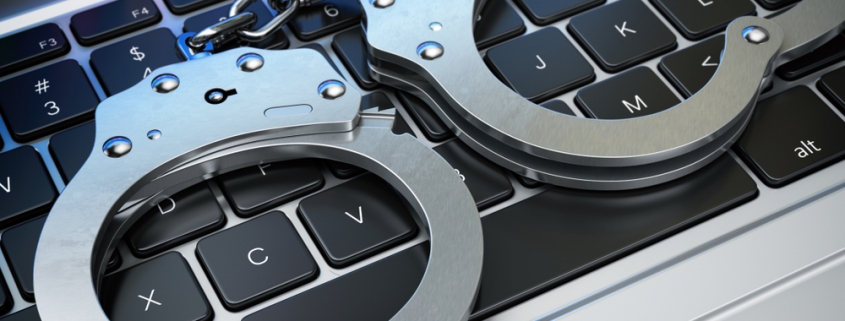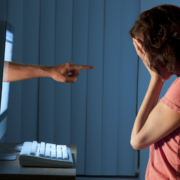Anti-cyber Bullying Laws in Australia and How You Can Defend Yourself
Navigating the internet would be a lot simpler and safer if there was an easy-to-find, all-encompassing cyber bullying law—say, an “Australian Anti-Cyber Bullying Law” statute. If we had a single law document that listed everything you wanted to know in it such as how to tell if someone is being cyber bullied, what help you can get, and the corresponding penalties for those who break it, things would be easier. Unfortunately, there isn’t one specific cyber bullying law of that sort here in Australia.
However, that is not to say that our legal system is toothless against the scourge of cyber bullying. On the contrary, Australian law offers help for victims and punishment to cyber bullies (as long as you have enough evidence, that is). Read on for key insights that will help you be more legally informed and prepared in dealing with and addressing cyber bullying.
Cyber Bullying Laws in Australia
There is no “cyber bullying” provision in the Australian Criminal Code, but it is against the law to harass someone using a carriage service (e.g. the internet, phone, or social media). The maximum possible penalty is three years of jail time or a fine that is over $30,000. It is also an offence to:
- Stalk somebody online
- Threaten somebody online
- Defame somebody (attack their reputation using lies) online
- Tell somebody to kill themselves online
- Access someone’s account without their permission
There are different penalties for various cyber bullying acts, and not everything that might be considered bullying behaviour will be seen as a “crime,” depending on where you live.
Will the Cyber Bully Get Arrested?
The short answer is, it depends.
First of all, you will need to be able to show that the person you say cyber bullied you is the one who did the bullying. Sometimes people have ways to disguise themselves, like using fake profiles or sending messages anonymously.
If the cyber bully is a minor, police tend to leave what they think of as less serious, “low level” matters involving juveniles to parents or school officials and they prefer to give warnings. According to a recent Australian Law Reform Commission report, based on available statistics it appears that in more than 20% of police recorded cases of juvenile offences, a caution was issued. When cases do end up as arrests and charges, the legal system for juvenile offenders has more of a rehabilitative focus than for adult offenders. 85% of young people (ages 10-17) under youth justice supervision were given community-based supervision; 15% were under detention.
It’s also worth noting that stiffer penalties in Australia could be underway. For example, the New South Wales government is planning to strengthen their laws against cyber bullying, increasing the maximum amount of prison time to five years (up from three in current Commonwealth laws). At the very least, this is a clear indication that cyber bullying is being taken more seriously.
What Should a Victim of Cyber Bullying Do?
Just because immediate and serious police consequences may not occur if an incident of cyber bullying is reported, it doesn’t mean people who are cyber bullied have to simply “take it.” Nor does it mean that people should never contact the police if they’re cyber bullied. If the bullying behaviour is scaring the victim or making them really uncomfortable, they should definitely report it to the local police as soon as possible.
Authorities recognise that individuals aged 15-24 are at a high risk for crimes such as assault, especially perpetrated by other juveniles. Remember that while bullying could have started online, there is a possibility it could escalate into physical and emotional danger—and police take that seriously. We should also remember the other ill-effects of cyber bullying, from poor school performance to self-harm and even suicide, that add more urgency to the situation.
Sometimes, a warning from the police may be enough to put the cyber bully in their place. At the very least, there will be a formal police record outlining the bullying. If they continue, the consequences for them will be harsher. Additionally, you can:
- Keep the lines of communication open –Young children and students can be notoriously secretive about their lives, especially to their parents. In fact, around 70% of parents don’t know what their kids are doing online. Parents should nevertheless make sure that they have serious discussions with their children about what behaviour constitutes cyber bullying. They should also be open to listening to their children’s concerns, especially about things that are happening at school or their relationships, without judgement. This way, children will be more likely to tell their parents about their experience, leading to faster response and avoidance of the situation (and its effects) getting out of hand.
- Document the behaviour – Social media bullying is usually not a one-time event, unfortunately. What you want to do is take screenshots and notes about the different incidents (insults, threats, etc.) with relevant details such as dates, time, and any information that could be relevant to school officials, the eSafety Commissioner, or police. The more of a pattern you can show, the more you give the authorities to work with.
- Use a cyber bullying prevention program – Today’s families can rely on an online monitoring tool in Australia, such as Starshell Student, which is designed specifically for students and young children. The platform monitors social media content and messages, reinforces the school’s social media guidelines, and filters out harmful content that might be deemed as a form of cyber bullying. Not only does Starshell Student provide notifications and alerts for potentially harmful/harassing communications, it also teaches students to watch their own online behaviours so that they are less likely to become cyber bullies themselves.
The law exists to deter or punish cyber bullying in Australia. However, if you want to take a more proactive approach, one that focuses on education rather than punishment, Starshell Student is here for you. Our platform monitors and filters out potentially harmful content on social media and also teaches students how to become responsible social media users. Together with parents, teachers, and the law, Starshell Student offers a digitally creative and innovative way to effectively stop bullying in the online space. If you have any questions or if you want to register and be a Starshell Student member, please don’t hesitate to contact us, we’ll be more than willing to help you out.









